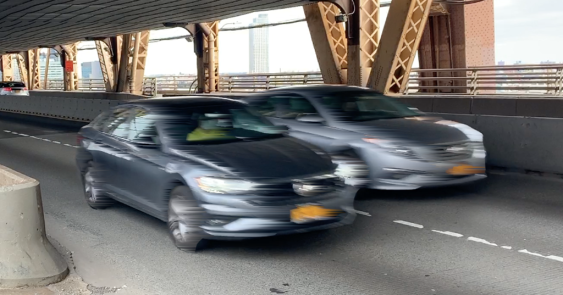At a House transportation committee hearing today that marked the one-year anniversary of the Obama administration's economic recovery efforts, lawmakers offered praise for the stimulus law's impact on local infrastructure investments even as they hit upon three key areas of concern with its implementation.
Committee chairman Jim Oberstar (D-MN) noted in his opening statement that 77 percent of the stimulus' formula-based road and transit spending, or $26.4 billion, has been put out to bid by state officials.
"Although the [stimulus] has counteracted the increase in construction unemployment, Congress must continue to focus on job creation," Oberstar said. "Additional funding for highway and transit projects will immediately create and sustain needed employment."
Yet U.S. DOT deputy secretary John Porcari found himself fielding some tough queries from several Democrats.
Rep. Laura Richardson (D-CA), who represents the Los Angeles area, echoed Connecticut lawmakers in requesting a briefing on the rationale for excluding her district from the $1.5 billion in competitive TIGER stimulus grants that were awarded last week.
"To be very frank with you, sir, I find it hard to understand how you can fund port communities ... and find it hard to fund the largest one in the U.S.," Richardson said. The ports of L.A. and Long Beach collaborated on a package that sought more than $365 million from TIGER (short for Transportation Investments Generating Economic Recovery), but ultimately fell short.
Even as she expressed frustration with the lack of port grants, however, Richardson said she was pleased with the TIGER program's California winners.
"There was overwhelming demand" for TIGER funding from states and localities, Porcari explained, "and we look forward to next rounds of them." He added that the U.S. DOT plans to refine the reporting requirements for stimulus funding recipients going forward, noting that the administration's initial goal of maximizing transparency "turned into a bit of an administrative burden."
The second caveat raised by Democrats dealt with a problem often lamented by civil-rights advocates: minority and disadvantaged contractors' lack of access to transportation stimulus funds.
Rep. Corinne Brown (D-FL) also lamented the inevitability
that "big guys get all of the dollars" in the federal contracting
arena. Likening stimulus funding to "my grandmother's sweet potato
pie," she quipped that "it's important that minorities and females get
a slice."
Rep. Donna Edwards (D-MD) echoed Brown, calling for "a specific report" evaluating how states are complying with the stimulus law's proscription that 10 percent of transportation formula contracts be given to minority or female firms. That 10-percent requirement, Edwards said, really should be a floor and not a ceiling."
Porcari made no attempt to sugarcoat the administration's progress on the complaints of minority contractors. "It's clear that we have a lot of work to do on this," he said. "It's clear that
some states are doing a better job than others."
Finally, Edwards, Rep. Phil Hare (D-IL), and other lawmakers made a pointed plea for the U.S. DOT to focus on "Buy American" rules for its high-speed rail grants as well as other infrastructure projects.
And Rep. Grace Napolitano (D-CA), for her part, urged Porcari to remember the unique position of low-income urban neighborhoods: "I need mass transit -- I don't need high-speed rail in my area," she said. "We only have bus transit."





